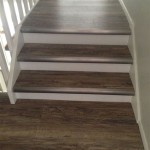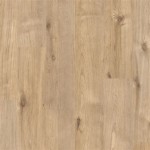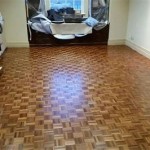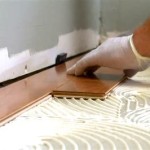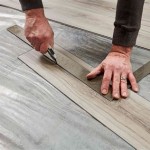Essential Pros and Cons of Cork Flooring in a Basement
Cork flooring is gaining popularity as a flooring option for basements, thanks to its unique properties and versatility. However, like any flooring material, it has its advantages and disadvantages. Here's a comprehensive guide to help you weigh the pros and cons of cork flooring in a basement setting:
Pros of Cork Flooring in a Basement:
- Moisture Resistance: Cork's natural cellular structure contains suberin, a substance that makes it highly resistant to moisture absorption. This makes it an excellent choice for basements, which are prone to humidity and occasional flooding.
- Thermal Insulation: Cork is a natural insulator, providing excellent thermal comfort. It retains heat well, making it a great choice for basements that can be cold and drafty.
- Sound Insulation: Due to its cellular structure, cork effectively absorbs sound and vibrations. This feature makes it a great choice for basements where noise reduction is desired.
- Durability: Cork is a surprisingly durable material, withstanding heavy foot traffic and resisting scratches and dents. Its elasticity allows it to bounce back from impacts, ensuring longevity.
- Environmental Friendliness: Cork is a sustainable and eco-friendly flooring option. It comes from renewable cork trees, which are harvested without harming the tree itself.
Cons of Cork Flooring in a Basement:
- Cost: Cork flooring is one of the more expensive flooring options, which may deter some homeowners with budget constraints.
- Maintenance: While cork flooring is generally low-maintenance, it requires specific cleaning and maintenance procedures to preserve its lifespan. It's important to use a cork-specific cleaner and avoid abrasive materials or harsh chemicals.
- Seams: Cork flooring is typically installed in tiles or planks, which can create seams. These seams may be noticeable, especially in large or open basement spaces.
- Limited Water Resistance: While cork is moisture-resistant, it's not entirely waterproof. If exposed to standing water for extended periods, it may warp or swell.
- Fading: Cork flooring can fade over time due to prolonged sunlight exposure. It's crucial to consider the lighting conditions of your basement and take precautions to minimize fading.
Additional Considerations:
Before deciding on cork flooring for your basement, consider these additional factors:
- Basement Grade: Ensure your basement is below grade, with proper drainage and waterproofing systems in place to prevent moisture issues.
- Subfloor Type: Cork flooring can be installed over various subfloors, but it's best suited for smooth, level surfaces like concrete or plywood.
- Installation: Cork flooring can be installed as a floating floor or glued down. The floating method is suitable for basement applications where moisture control is crucial.
Conclusion:
Cork flooring offers several advantages for basements, including moisture resistance, thermal insulation, sound absorption, and durability. However, its higher cost, maintenance requirements, and potential for seams and fading should be carefully considered. By weighing the pros and cons and addressing the additional considerations, you can determine if cork flooring is the right choice for your basement flooring needs.

Basement Cork Flooring Pros Cons Best Brands Home

Cork Flooring Pros And Cons Is It The Right Choice For You

7 Reasons You Should Consider Cork Flooring For Basements

Cork Flooring Pros And Cons America S Floor Source

Cork Flooring In Basements

Cork Flooring Pros And Cons Icork Floor

Cork Flooring Tile Plank Pros Cons Home

Basement Flooring Options You Should Check Out Real Estate Expert Tre Pryor

Cork Flooring Pros And Cons Icork Floor

Cork Flooring Pros And Cons America S Floor Source
See Also
